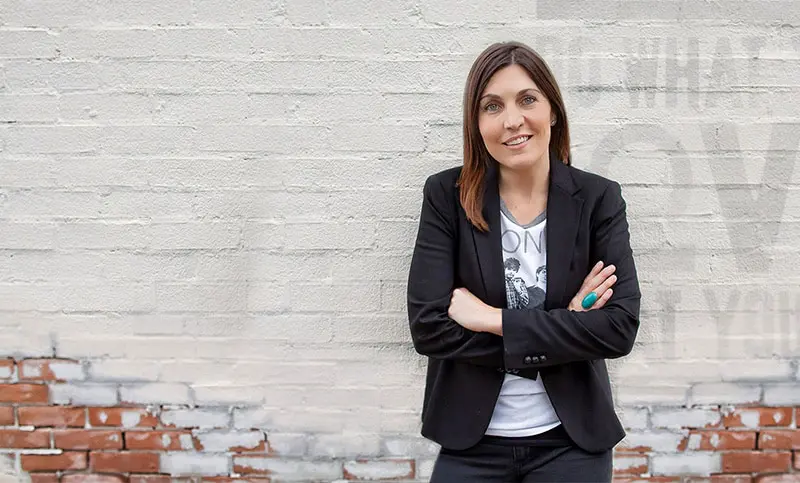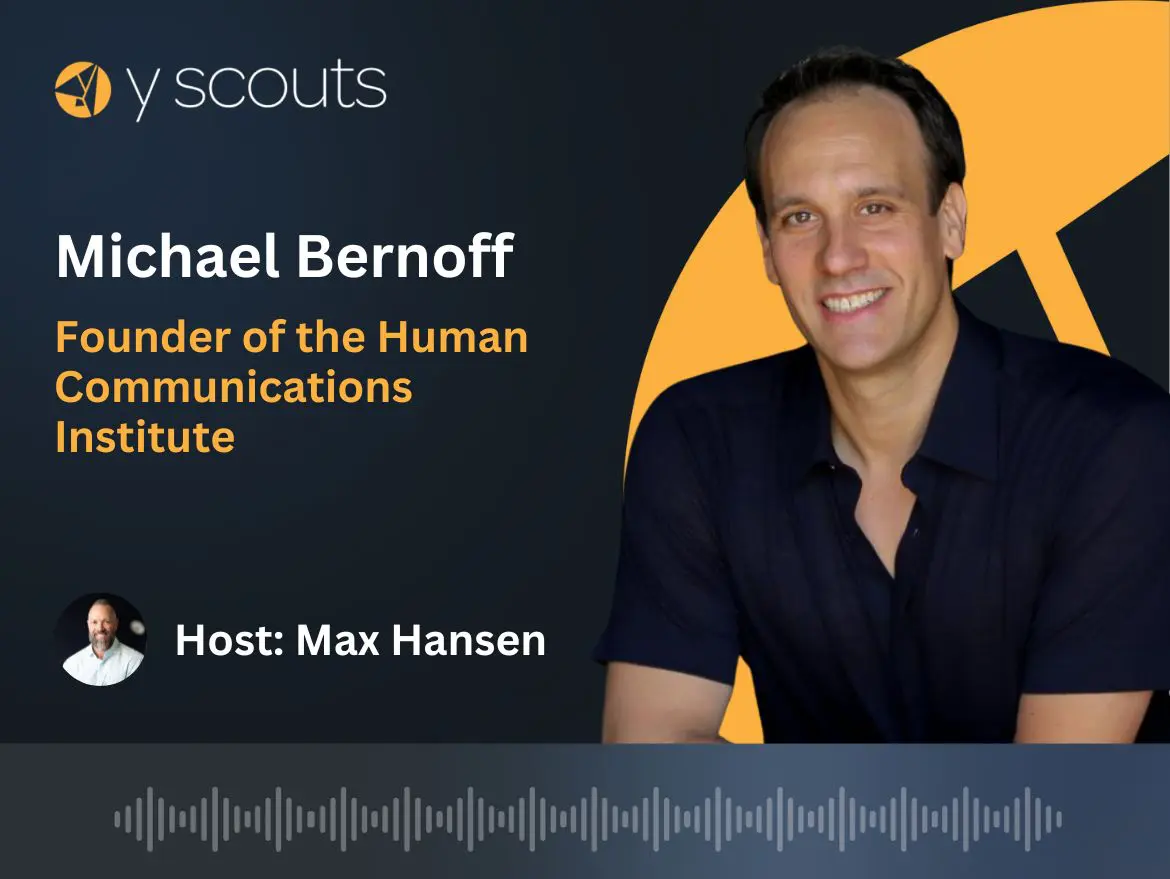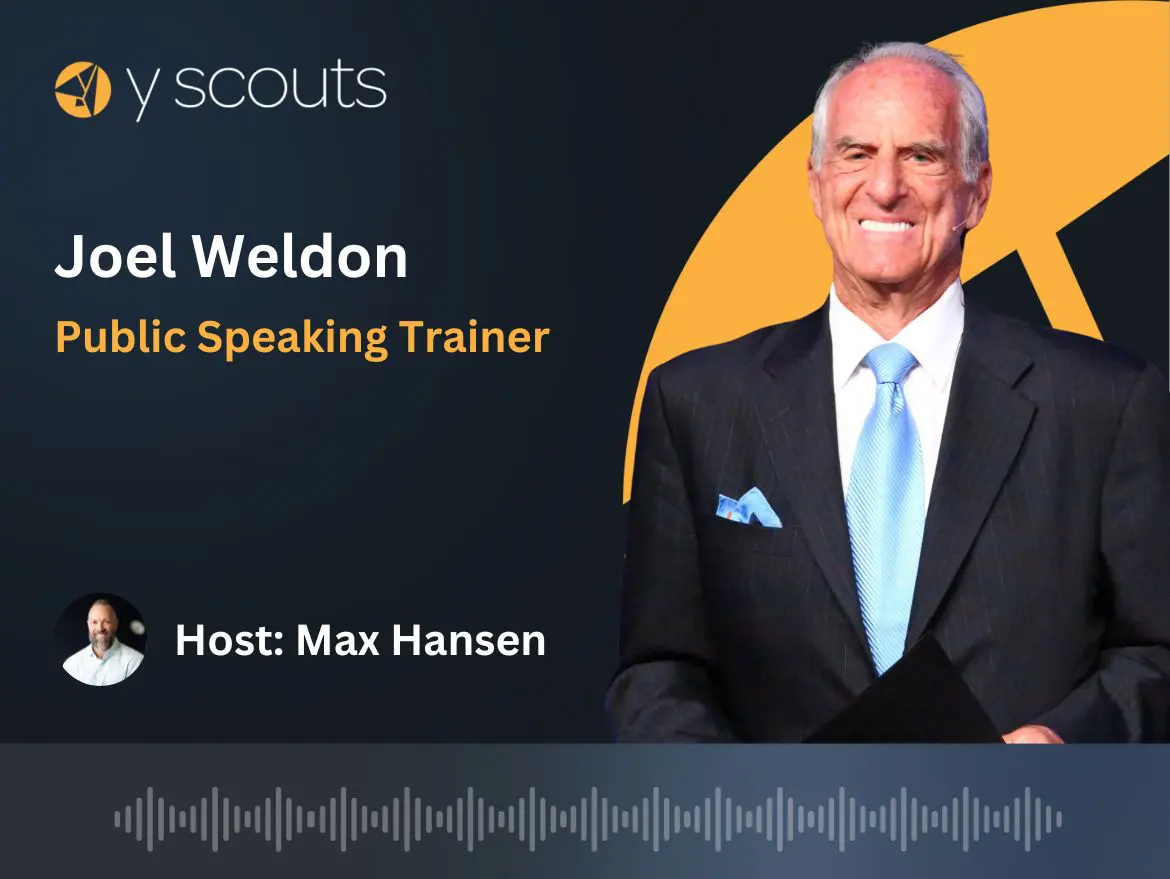
In this episode, Kathy Sacks covers a variety of topics including the power of unlocking human potential, how playing it safe on the inside is a recipe for mediocrity, and why you should embrace the things you fear most. Kathy was one of the early employees and investors at Infusionsoft, which is widely considered one of the darling tech companies in the Phoenix area. After a very successful tenure helping grow the company from a few million to more than 60 million, she decided to leave – and we’ll explore her journey as well as how she has used the power of intention to guide her through uncharted waters.
Kathy is the real deal: raw, passion-driven and on a path to create a wave of positive change in the world. Whether or not you know Kathy personally, by the end of this episode, you’ll walk away with a clear understanding of what makes her tick, and you will feel a blast of inspiration to live the life you’ve always wanted. Check out these takeaways of wisdom, success and women empowering the workforce from Kathy Sacks!
Listen to this podcast interview and more episodes from the Built On Purpose Podcast at https://yscouts.com/podcast/
Table of Contents
ToggleSHOW HIGHLIGHTS:
- 3:37 – Unlocking your real potential, through an understanding of both one’s own neuropsychology and a self-designed career path
- 5:47 – How a humble upbringing within an immigrant family started her on the path toward entrepreneurship and a colorful journey through the working world
- 8:56 – Recognizing your own superpowers and putting them into play for lifelong leadership
- 10:35 – A 10-point “manifesto” designed for achieving your highest potential, both in and out of the working world
- 14:36 – Anecdote of a learning moment found in front of a Smith Corona typewriter
- 17:17 – Turning both past business risks and personal tragedy into wisdom and seeing life through a different lens
- 21:13 – What makes up a successful leadership philosophy, particularly through self-awareness
- 24:15 – Improving yourself as a leader through the concepts described in “Multipliers: How The Best Leaders Make Everyone Smarter” by Liz Wiseman
- 28:05 – How coworkers and employees bringing your own faults as a leader to light helps you foster better work tactics and relationships
- 30:03 – How practicing meditation and mindfulness can help slow down a hectic work life
- 35:30 – Leaving Infusionsoft and heading for new “ways of being”
- 40:28 – The start to angel investing
- 47:26 – Setting an example for women in leadership not by “waving the gender card,” but rather by defining Kathy’s own success as an entrepreneur and businessperson who also happens to be a woman
- 56:00 – How fears can morph into a goal-setting mentality
SHOW LINKS
- Kathy Sacks website
- “Multipliers: How The Best Leaders Make Everyone Smarter”
- Transcendental meditation (TM)
The 10-point “Manifesto For Keeping It Real”
- You are braver than you think you are.
- Making money and delivering positive impact are not mutually exclusive.
- Fear exists to remind us we are alive. Embrace it, because what scares you the most is the very thing you should be doing.
- When you break out of the past, you can write a new story for yourself.
- Getting distracted by surface-level wants is the quickest path to a life unfulfilled.
- Honesty takes courage. Truth is the answer, every time.
- Be curious. Ask better questions.
- You were given a voice for a reason. Use it.
- Every day should be lived with courage and care, as though it were your last.
- When in doubt, gratitude is always the answer.
Who is Kathy Sacks?
I am an entrepreneur, I’m someone who loves to grow businesses, start businesses, help others to grow businesses. That’s one dimension of me. I come from a background of immigrants; my dad was an entrepreneur with an eighth-grade education, so watching him build his business—so feast and famine—really inspired me. For me, I love the idea of being in control of my destiny. That’s really been the theme in my career. Here’s how I look at it: I’m a female, I’m an only child, I’m a first generation and my parents were not educated. We did not grow up wealthy, were middle class, compared to other Hungarians in New Jersey, we were actually doing really well because my dad was an entrepreneur—he was a mason contractor. He didn’t work in the factory like a lot of my friends’ parents did where there was a steady salary. So my dad was this risk-taker, and my mom was a seamstress. She worked in a factory and she was much more “safe” than my dad was. I was a perfectionist, and because I was the only kid, because I had something to prove, because I was the first person to go to college, I had this huge chip on my shoulder. And as a result, I look back and I realize I have played it safe for most of my life. And to the outside, I had a magazine I cofounded with my husband; we built it and were able to sell it to a publicly traded company, then we started another magazine in San Diego, and that did well, and then the timing in the market didn’t work out so well, and we were able to move from that successfully. I started a tech/PR firm, and I did really well with that. And I took on heads of marketing roles with fast-growth tech companies, most recently with a company called Infusionsoft, where I was an early investor and consultant and later joined management team. While I was there, we took the company from 10 million to a little over 60 million when I left. We had two acquisitions, and we took in almost $70 million in venture capital by the time I had left.
And yet, when I look back, I realize that I was playing it safe—and the reason is because I never wanted to look bad, so I tried to be good at everything. When you do that, you’re not spending the time focusing, doubling down on your strengths—you’re just sort of hedging; you’re just trying to manage it all, rather than really focusing on where you’re very sharp, and on your superpowers. So for me, it really came with when I stepped out of the roller coaster of this venture-backed, fast-growth “factory,” of sorts. Part of it becomes a grind, and you don’t spend a lot of time in introspection; you’re just doing it, doing it, doing it, every day. And I realized looking back that I was just up to proving something and looking good, every single day in my career.
Get over your obstacles of: I’m afraid, I’m not good enough, I’m not smart enough, I don’t know enough, whatever your challenges are. You just get over it, and then the person experiences having accomplished the things they were most afraid of, and you sort of do that incrementally. And the next thing you know, that person is doing things that they never thought that they could.
It sounds like you really live your life according to the notion that the thing that scares you most is likely the thing that you should be throwing yourself into.
What I’ve figured out—and this is through having gone through being in media, having gone through cofounding this magazine, to building a team and having no idea what the hell we were doing, we were in our twenties and just going for it. We wanted to be the new breed magazine. We learned a lot, and we made a ton of mistakes and did a lot of things we were very proud of. We put our blood, sweat and tears into that. I got photographers to work for me from Penney’s, and I couldn’t afford the best photographers, the best writers—but we found a way. They wanted to work on this project. I guess when you’re in it, it didn’t feel like a risk. But when I look back at that, and then growing up and maturing, through my thirties and now in my early forties, I’m a mom, we have a seven-year-old daughter, and my mother passed away a few years ago, and I left a big job. So I turned 40, my mother died—she got sick with leukemia and had a five-month battle. I had just left Infusionsoft the day that I got the call from her that she was diagnosed. Then, I turned 40 maybe 4 months after she passed. So for me, that was a moment or the series of events that made it very clear—and you hear this from people, you have these tragic events that happened, and out of it comes wisdom. I’ve been able to come to the other side and be very grateful for all the bad things that have happened—the things you would stick in a bad bucket—that have actually been some of the greatest things that have happened to me.
Do you think that’s just a matter of you choosing your perspective on it?
Yes. I think it’s 100 percent a choice. I’ve had the victim mentality in my life, and I think it requires being aware that that’s not serving you, being in enough pain to want it to be different, and then taking the steps to get access to people and information that are going to then educate you on why it makes sense to make the shift and see things through a different lens.
So you’ve had experiences as an entrepreneur, and even when you were a senior-level leader of organizations where it wasn’t solely your organization—you still led in an entrepreneurial way. So for the majority, if not all, of your career, you’ve been in a leadership capacity in some way, shape or form. Could you define your leadership philosophy?
Leadership is a list, but I think it all starts and ends with self-awareness. Why? Because if you’re not interested in knowing more of who you’re being, then how can you learn to be better? Leadership is service. Leadership is not about me being the boss, leadership is about me enabling the people that I’m leading to be their very best selves.
Additional Kathy Sacks Podcast Interviews:
- Kathy Sacks on The Benifit





